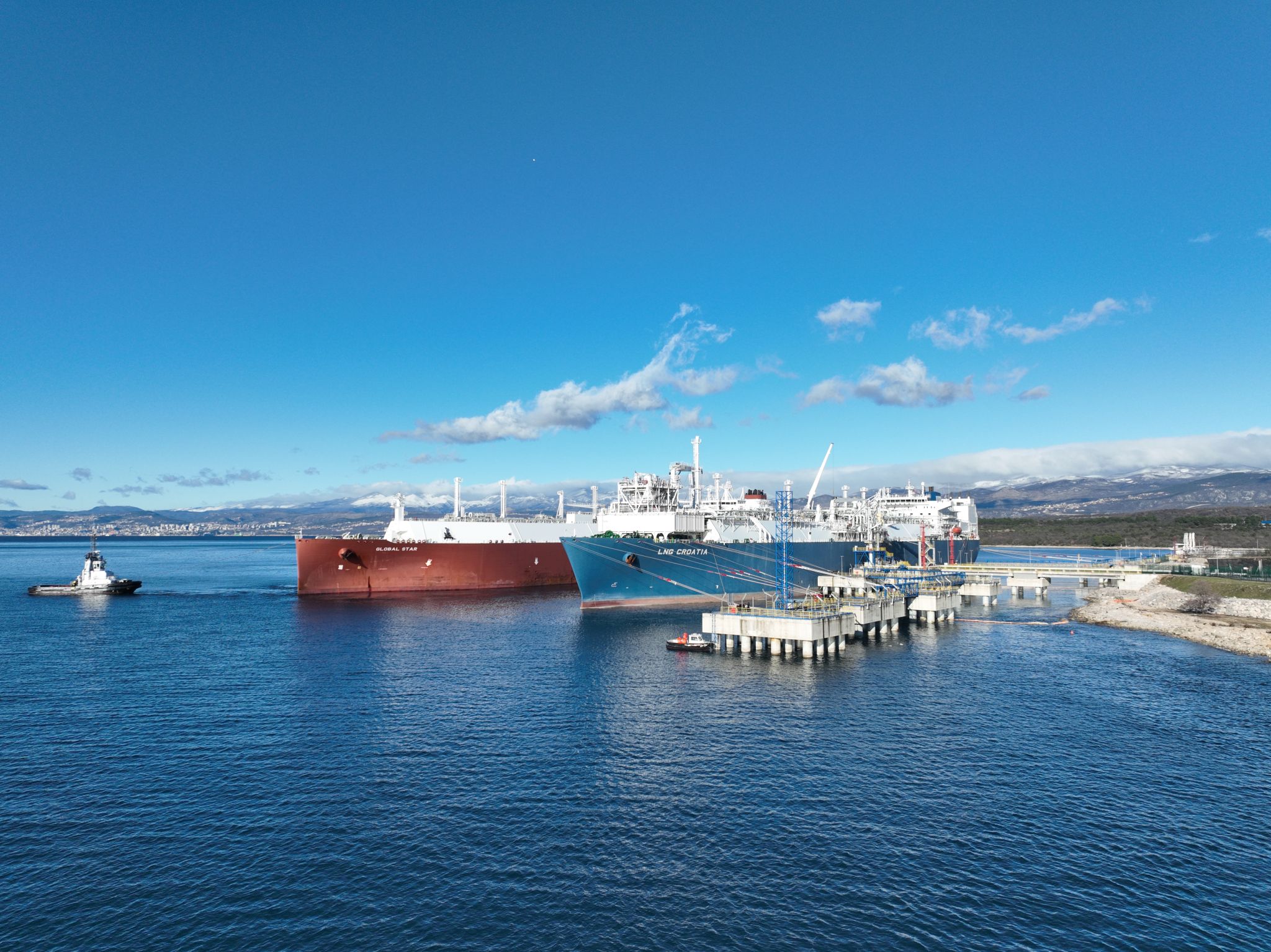This story requires a subscription
This includes a single user license.
LNG Croatia is adding a new regasification module on its 140,000-cbm FSRU to further boost capacity.
The contract awarded to Kuzey Star is worth about 14.6 million euros ($15 million) and the scope of services includes installation, implementation, and commissioning of the new module and equipment on the FSRU.
LNG Croatia announced the contract award on Monday following a tender procedure last year.
Besides Kuzey Star, LNG Croatia also awarded a contract worth about 2 million euros ($2.04 million) to compatriot SCAN.
The second contract includes procurement and installation of electrical power equipment for the integration of the FSRU with the module and meeting facility.
In July 2024, LNG Croatia launched a tender for these two contracts, and after that, it extended the bid deadline.
Module built in China
In November 2023, Chinese shipbuilder Nantong CIMC Sinopacific Offshore & Engineering secured a contract from a unit of Finland’s Wartsila to build one regasification module that will be installed onboard the FSRU.
Earlier the same year, Norway-based Wartsila Gas Solutions won the contract worth about 22.9 million euros ($23.4 million) to supply the regasification module for the FSRU that serves LNG Croatia’s Krk LNG import facility.
The new module will supplement the vessel’s existing onboard Wartsila regasification system and increase the FSRU terminal’s capacity with 212 mmscfd (million standard cubic feet per day) or 250,000 cbm per hour.
The current three LNG regasification units have a maximum regasification rate of 451,840 cbm per hour.
Following the upgrade, the Krk LNG facility will have a capacity of about 6.1 bcm per year.
Wartsila Gas Solutions previously said the module will be installed during summer 2025.
The expansion will cost about 180 million euros ($195 million), while the bigger part of the project includes the construction of a new pipeline from Zlobin to Bosiljevo worth about 155 million euros.
Croatian FSRU received 109 LNG cargoes
Back in 2020, China’s Huarun Dadong and its shareholder Hudong-Zhonghua completed the conversion of the 2005-built 140,000-cbm vessel, Golar Viking, to an FSRU.
After that, the FSRU departed to the island of Krk, and received its first commercial LNG cargo in January 2021.
Croatia’s FSRU-based Krk terminal recently received its 109th LNG cargo since the launch of operations in January 2021, according to LNG Croatia.
The Croatian FSRU mainly receives shipments from the US, but it also received cargoes from Qatar, Nigeria, Egypt, Trinidad, Indonesia, Algeria, and reloads from European terminals.
LNG Croatia is owned by Croatian state-owned power utility HEP and Plinacro, the national gas transmission system operator (TSO), with 85 percent and 15 percent, respectively.
Hungary’s MFGK and a unit of Switzerland-based trading firm MET are some of the users of the facility.

